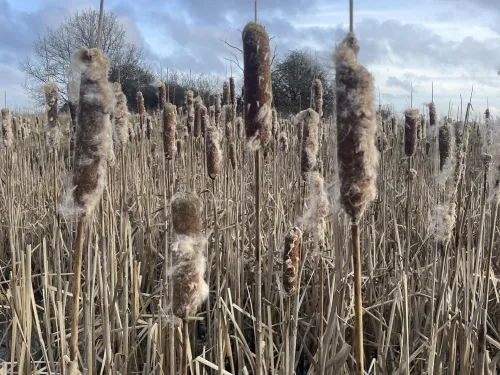
February on Hothfields: A spotlight on reed mace
Long-time volunteer Margery Thomas explores the wildlife at Hothfield Heathlands in February, where reedmace tells a story...
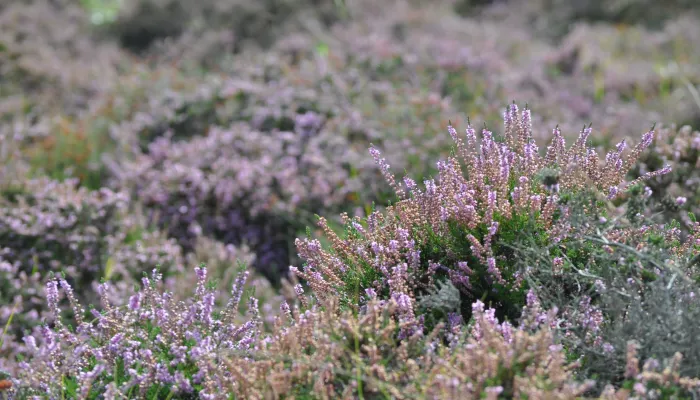
Rich in flora and fauna, this important reserve contains Kent's last four valley bogs and one of its few remaining fragments of open heath.
Opening times: open at all times.
Volunteer work parties: Tuesdays and Thursdays (and 2nd Sunday of the month Sep-Mar) undertaking habitat management. Be aware that essential management can sometimes be noisy and if you are concerned it may disturb your visit consider visiting on a different day. If you would like to get involved, please visit our volunteering page.
Best time to visit: all year round.
Dogs: Dogs must be on leads from March until end of August across all open spaces. Dogs may be off lead, but under control within the woodland sections of the reserve only. Please follow all signage.
A visit to Hothfield Heathlands is a visit to one of the last remaining heathlands in Kent. After walking through a narrow canopy of broadleaved trees, you break through to reveal the wide-open landscape of Hothfield Heathlands. The spring will bring with it the fresh green growth of Heather, gorse and a myriad of tiny plants.
The coconut scented gorse bushes provide the perfect perch for many bird species, Yellowhammers, White Throat and Willow Warblers all sing boldly from these prickly bushes. Make sure you keep an eye on the floor too, the finger-sized holes of the minotaur beetle are scattered liberally across the bare ground, while the metallic Green Tiger Beetle will be buzzing vigorously around your feet.
A series of waymarked paths allow you to explore most of this unique site, with boardwalks allowing access to some of the wettest parts of the reserve. These wet bogs are home to a wonderful collection of rare plants, many of which are found only at Hothfield. Carnivorous Round Leaved Sundew, cotton grass, bog asphodel and heath spotted orchids are amongst the most dramatic.
The reserve is managed by Kent Wildlife Trust on behalf of Ashford Borough Council.
Our new Triangle Trail at Hothfield Heathlands is a 500m all weather accessible trail, with a smooth even surface path, regular passing places and some gradual slopes.
Our volunteer teams regularly carry out scrub removal from across the reserve.
The most vigorous scrub species are birch and alder, adapted to grow very quickly from seed, they are the pioneer species that would pave the way for the site becoming a woodland.
Although woodland is a very important habitat, and Kent Wildlife Trust manages thousands of acres of woodland across Kent. However, quality heathland and bog, the main habitats at Hothfield, are not found anywhere else in Kent. Losing this area to woodland would wipe out hundreds of species that would not survive under a canopy of trees.
The trees also have a further detrimental effect on the bogs, sucking up thousands of gallons of water, drying out the peatland. Once the bogs lose their moisture the peat dries up and the carbon stored for hundreds of years gets released back into the atmosphere.
If you have any questions about this work, or would like to help out, please contact the Ashford Warden at [email protected]
We carry out path improvements on the rest of the reserve, using sand to raise some of the muddier paths and making them easier to navigate over the winter. There are also a number of raised boardwalks that we regularly maintain.
To keep the cattle, ponies and sheep are safe and secure our fences need regular maintenance or replacement.
Our wonderful volunteers work all year round on the reserve. Tree popping birch from the heathland, repairing fences, building dead hedges, fixing paths, looking after the livestock and all the other work that this tireless gang carry out.
The volunteers are out every Tuesday and Thursday and also the first Sunday of every month.
If you need to get in touch regarding Hothfield Heathlands, for any reason, please contact:
Contact number: 01622 662012
Contact email: [email protected]

Long-time volunteer Margery Thomas explores the wildlife at Hothfield Heathlands in February, where reedmace tells a story...
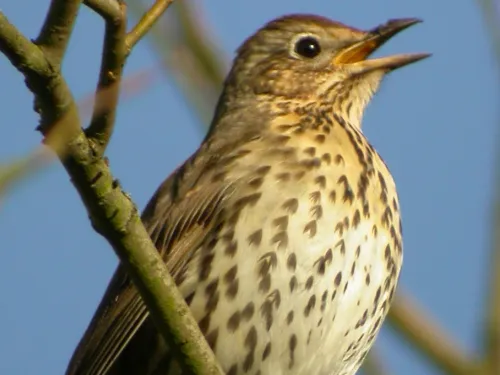
If December was a merry berry month for humans celebrating mid-winter festivities, January and February are serious berry months for birds and mammals aiming to survive winter...
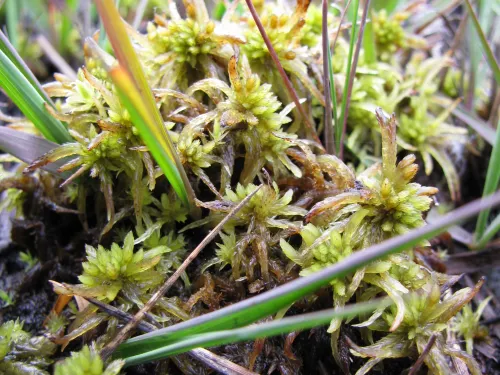
In our December instalment about Hothfield we focus on mosses and lichens on the reserve. Read on to find out more.
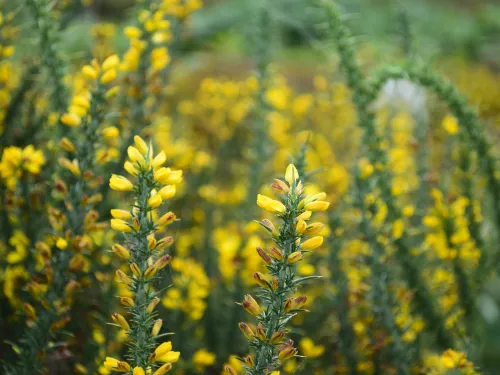
Long-time volunteer Margery Thomas explores what Hothfield Heathlands is like on a crisp November day.
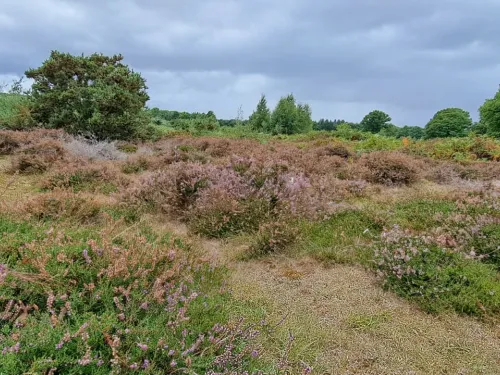
Area Manager, Ian Rickards, takes a moment to reflect on the work at Hothfield Heathlads throughout the summer months.
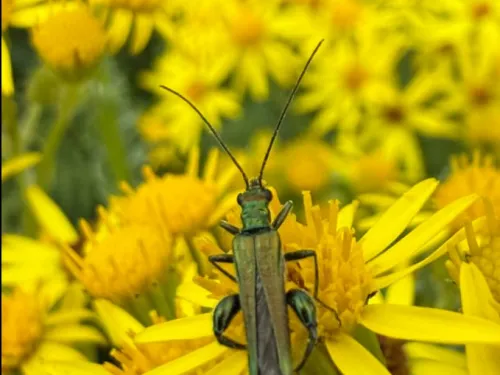
Pigs and tree pipits have returned to Hothfield Heathlands. Long-time volunteer Margery Thomas explores more in this blog.